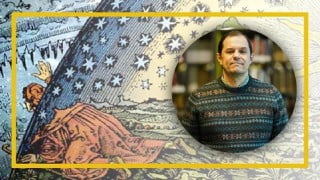Free Philosophy Tutorial – The Vocabulary of Science: First Steps to Science Literacy
Learn about the nature of science and the meanings of key scientific terms in this course. Perfect for science students, educators, and enthusiasts, you’ll gain a deeper understanding of scientific reasoning and how to effectively communicate about scientific issues. Developed by an experienced philosopher of science, this course offers quizzes and assignments to test your knowledge. Discover the history and philosophy of science while improving your critical thinking skills. Enroll now and enhance your science literacy.
WHAT IS THIS COURSE ABOUT?
Is evolution a theory, a fact, or both? This question has been debated by critics and defenders of evolution for many years.
Some claim that evolution is a theory, not a fact. Others claim that evolution is a fact, not a theory. And still others say that evolution is both a theory and a fact.
What exactly is going on here?
One reason why the debate persists is that people disagree not only on the strength of the evidence for evolution, but also on the meanings of the key terms, “theory” and “fact”.
This course is designed to help you understand and think critically about debates like these, debates about the nature of science that turn on the meanings of scientific terms like “theory”, “fact”, “law”, “hypothesis” and “model”.
ABOUT YOUR INSTRUCTOR
I have 20 years of experience teaching the history and philosophy of science at the university level, but now I work as independent online educator. I have given lectures on the topic of science literacy to national and international audiences.
I have over 30,000 students on Udemy, where I also offer courses on critical thinking and argumentative essay writing.
WHO IS THIS COURSE FOR, AND WHAT WILL YOU LEARN?
This course is for anyone interested in learning more about how a philosopher of science thinks about science and scientific reasoning.
It will be of special interest to science students, science educators of all kinds, and people interested in debates about the nature of science.
In this course you’ll learn the various meanings of the key terms, “theory”, “fact”, “law”, “hypothesis” and “model”, as they’re used both within and outside science.
You’ll learn the most common confusions made by people who write about science.
And you’ll have an opportunity to test your understanding through quizzes and a video critique assignment.
Who this course is for:
- Science science educators and science enthusiasts of all types
- Anyone interested in learning how to better communicate with others about scientific issues, and engage constructively in scientific debates
- Anyone interested in understanding how science really works
- Anyone interested in the history and philosophy of science
User Reviews
Be the first to review “Free Philosophy Tutorial – The Vocabulary of Science: First Steps to Science Literacy”
You must be logged in to post a review.







There are no reviews yet.